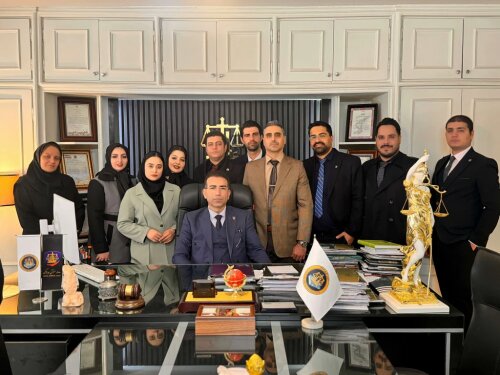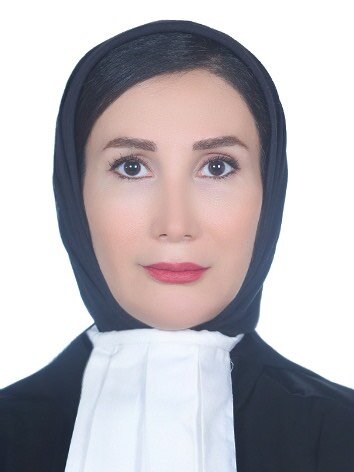Best Mortgage Lawyers in Iran
Share your needs with us, get contacted by law firms.
Free. Takes 2 min.
Free Guide to Hiring a Real Estate Lawyer
Or refine your search by selecting a city:
List of the best lawyers in Iran
About Mortgage Law in Iran
Mortgage law in Iran allows individuals to borrow money from financial institutions by using their property as collateral. This type of loan is secured by the property being mortgaged, giving the lender a legal right to take possession of the property if the borrower fails to repay the loan.
Why You May Need a Lawyer
You may need a lawyer for mortgage-related issues in Iran to protect your legal rights, interpret complex legal terms, negotiate terms with financial institutions, and handle any disputes that may arise during the mortgage process.
Local Laws Overview
In Iran, the Civil Code governs mortgage law. Key aspects include requirements for a valid mortgage contract, registration of the mortgage with the relevant authorities, rights and duties of the parties involved, foreclosure procedures, and penalties for breach of contract.
Frequently Asked Questions
1. What are the requirements for a valid mortgage contract in Iran?
In Iran, a valid mortgage contract must be in writing, signed by both parties, specify the amount of the loan, describe the property being mortgaged, and state the terms and conditions of the loan.
2. How is a mortgage registered in Iran?
A mortgage in Iran must be registered with the Registration Office in the area where the property is located. Registration is essential to ensure the mortgage is legally recognized.
3. What are the rights of the borrower in a mortgage agreement?
The borrower has the right to use the property for as long as they repay the loan in accordance with the terms of the contract. They also have the right to redeem the property by settling the outstanding debt.
4. What are the consequences of defaulting on a mortgage in Iran?
If the borrower defaults on the mortgage, the lender has the right to foreclose on the property and sell it to recover the outstanding debt. The borrower may also face legal penalties for breach of contract.
5. Can a mortgage be transferred to another party in Iran?
Yes, a mortgage in Iran can be transferred to another party with the consent of both the lender and the borrower. The new party must assume the rights and obligations of the original mortgage agreement.
6. How can a lawyer help with mortgage negotiations in Iran?
A lawyer can help review and negotiate the terms of the mortgage agreement to ensure the borrower's interests are protected, explain the legal implications of the contract, and advise on any potential risks.
7. What is the process for foreclosure in Iran?
If the borrower defaults on the mortgage, the lender can initiate foreclosure proceedings through the courts. The property will be sold at auction, and the proceeds will be used to repay the outstanding debt.
8. Are there any penalties for early repayment of a mortgage in Iran?
There may be penalties for early repayment of a mortgage in Iran, depending on the terms of the contract. It is essential to review the agreement carefully before making any early payments.
9. Can a mortgage be modified in Iran?
Yes, a mortgage in Iran can be modified with the consent of both parties. Any changes to the mortgage agreement must be legally documented and registered with the relevant authorities.
10. How can I find a reliable lawyer for mortgage issues in Iran?
You can find a reliable lawyer for mortgage issues in Iran by asking for recommendations from friends or family, consulting legal directories, contacting the Iranian Bar Association, or seeking referrals from other legal professionals.
Additional Resources
For additional resources related to mortgage law in Iran, you can contact the Registration Office, the Iranian Bar Association, the Ministry of Justice, or seek guidance from legal aid organizations in your area.
Next Steps
If you require legal assistance with mortgage issues in Iran, consider consulting a qualified lawyer with experience in mortgage law. They can guide you through the legal process, protect your rights, and help resolve any disputes that may arise during the mortgage transaction. It is essential to seek legal advice early to avoid any potential pitfalls or legal complications.
Lawzana helps you find the best lawyers and law firms in Iran through a curated and pre-screened list of qualified legal professionals. Our platform offers rankings and detailed profiles of attorneys and law firms, allowing you to compare based on practice areas, including Mortgage, experience, and client feedback.
Each profile includes a description of the firm's areas of practice, client reviews, team members and partners, year of establishment, spoken languages, office locations, contact information, social media presence, and any published articles or resources. Most firms on our platform speak English and are experienced in both local and international legal matters.
Get a quote from top-rated law firms in Iran — quickly, securely, and without unnecessary hassle.
Disclaimer:
The information provided on this page is for general informational purposes only and does not constitute legal advice. While we strive to ensure the accuracy and relevance of the content, legal information may change over time, and interpretations of the law can vary. You should always consult with a qualified legal professional for advice specific to your situation.
We disclaim all liability for actions taken or not taken based on the content of this page. If you believe any information is incorrect or outdated, please contact us, and we will review and update it where appropriate.
Browse mortgage law firms by city in Iran
Refine your search by selecting a city.

















